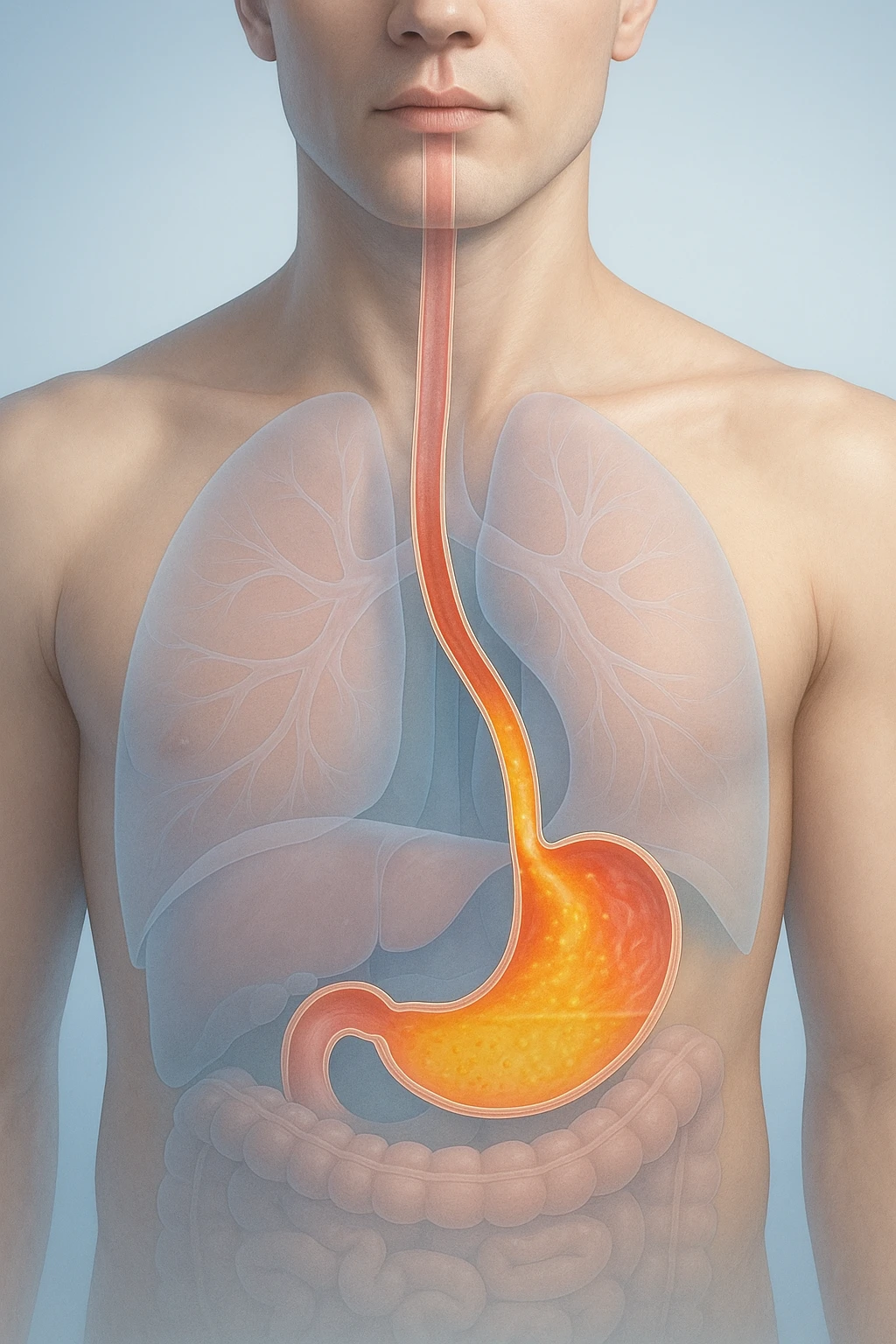The Impact of Loss of Appetite on Aging: Symptoms and Solutions
Loss of Appetite in Older Adults: An Overview
Loss of appetite is a common and often under-recognized issue in older adults. While it is frequently assumed to be a natural part of aging, it can have serious consequences for health and quality of life. Appetite loss in this population often leads to malnutrition, weight loss, muscle wasting, and other physical and cognitive declines. Addressing this issue early in clinical care can prevent long-term negative outcomes and improve overall well-being.
Why Appetite Matters for Older Adults
Maintaining a healthy appetite is critical for older adults to ensure they receive adequate nutrition. Proper nutrition helps sustain muscle mass, strength, and immune function, all of which are crucial for healthy aging. Without sufficient caloric intake, older adults may experience diminished muscle mass, weakened bones, and a reduced ability to recover from illnesses or injuries. In severe cases, prolonged appetite loss can contribute to sarcopenia, frailty, and overall physical decline.
- Muscle Mass: Insufficient appetite can lead to diminished muscle mass, increasing the risk of frailty and functional decline.
- Bone Health: Poor nutrition due to appetite loss can weaken bones, making individuals more susceptible to fractures.
- Recovery: Without proper caloric intake, the body may struggle to recover from illnesses, injuries, or surgeries.
Causes of Appetite Loss
Loss of appetite in older adults can arise from various factors, ranging from physiological changes due to aging to underlying medical conditions and psychological factors. Understanding these causes is crucial for addressing and managing this condition effectively. Appetite loss can be a sign of deeper health concerns and can lead to serious consequences if not properly recognized and treated.
Aging and Physiological Changes
- Changes in Taste and Smell: Diminished senses can reduce the appeal of food, leading to decreased appetite.
- Decreased Gastric Motility: Slower digestion can result in a feeling of fullness, reducing the desire to eat.
- Hormonal Changes: A reduction in hunger-regulating hormones, like ghrelin, can suppress appetite further.
Medical Conditions and Medications
- Chronic Conditions: Diseases such as cancer, heart failure, and chronic kidney disease often lead to systemic inflammation, which can reduce appetite.
- Medications: Chemotherapy, painkillers, and antidepressants are commonly prescribed but may have side effects that suppress appetite.
Psychological Factors: Depression and Cognitive Decline
- Depression: A common psychological cause, depression can lead to a loss of interest in food and lack of motivation to eat.
- Cognitive Decline: Conditions like dementia can impair the ability to recognize hunger cues or prepare meals, exacerbating appetite loss.
Impact of Appetite Loss on Health
Loss of appetite can have a profound impact on both physical and cognitive health, particularly in older adults. If not properly addressed, it can lead to a cycle of decline that affects overall well-being. The effects are often far-reaching, influencing muscle mass, mobility, and even cognitive function. Understanding these impacts is critical to preventing further deterioration and supporting recovery.
Physical Health: Sarcopenia and Mobility
Decreased appetite is strongly linked to reduced muscle strength and mobility in older adults. This loss of appetite often leads to sarcopenia, a condition characterized by the progressive loss of muscle mass and function. As muscle strength decreases, individuals may experience difficulty with everyday tasks, such as walking or climbing stairs. This, in turn, can lead to a higher risk of falls, fractures, and overall functional decline. In severe cases, the inability to maintain physical strength can reduce independence and increase the need for assistance with daily activities.
- Reduced Muscle Strength: Loss of appetite contributes to the loss of muscle mass, making it harder to perform basic activities.
- Increased Risk of Falls: Weakened muscles increase the risk of falls and fractures, which can severely affect mobility.
- Decreased Independence: As muscle function declines, individuals may require more assistance with daily activities.
Cognitive Health: The Role of Depression and Cognitive Decline
Appetite loss is also closely tied to cognitive decline, particularly in individuals with depression. Depression can reduce an individual’s interest in food, leading to diminished caloric intake and nutritional deficiencies. This not only exacerbates the symptoms of depression but may also contribute to the decline in cognitive function. In individuals with existing cognitive impairments or conditions like dementia, appetite loss can further impair their ability to recognize hunger cues, prepare meals, or manage their nutrition effectively. Over time, this can accelerate cognitive decline and worsen the individual’s overall health status.
- Impact of Depression: Depression reduces interest in food and can worsen cognitive decline.
- Impaired Hunger Recognition: Cognitive decline can prevent individuals from recognizing hunger cues, worsening appetite loss.
- Nutrition Management Challenges: Appetite loss in individuals with dementia or cognitive impairments can lead to poor nutrition management, exacerbating health decline.
Diagnosis and Management of Appetite Loss
Loss of appetite is a complex issue that requires systematic assessment and management to prevent further deterioration of health. Early identification and tailored interventions are crucial in improving clinical outcomes for patients. Various diagnostic tools and management strategies can aid in addressing the underlying causes of appetite loss and improving overall well-being.
Diagnosis: Tools for Assessing Appetite Loss
Diagnosing appetite loss can be challenging due to its multifactorial nature. A comprehensive assessment is essential to identify underlying causes and prevent complications. One commonly used tool is the Simplified Nutritional Appetite Questionnaire (SNAQ), which is designed to assess appetite loss and provide an early indication of nutritional risk. Despite its usefulness, diagnosing appetite loss still presents challenges, as there is no gold standard tool available. The subjective nature of appetite and its variation across individuals makes it important for clinicians to use a combination of tools and clinical judgment to assess patients effectively.
Management: Clinical Approaches and Nutritional Interventions
- Dietary Modifications: Improving food intake through changes to the diet, such as offering high-calorie, high-protein foods, can help prevent further weight loss and muscle wasting.
- Meal Planning: Meal planning and creating a supportive eating environment are crucial, especially for older adults who may struggle with meal preparation.
- Regular Follow-Up: Ongoing follow-up is necessary to adjust dietary interventions and ensure that nutritional needs are being met over time.
Pharmacological Interventions
- Appetite Stimulants: Medications such as megestrol acetate and dronabinol may be used to stimulate appetite, particularly in cases linked to cancer or chronic illness.
- Treating Underlying Conditions: Managing underlying conditions like depression or gastrointestinal disorders may improve appetite and overall health.
- Careful Monitoring: Pharmacological interventions should be part of a comprehensive treatment plan with regular monitoring for side effects and efficacy.
Prevention and Early Intervention for Loss of Appetite
Appetite loss is a common and often under-recognized issue in older adults, making early identification and preventive strategies essential in managing this condition. Addressing loss of appetite early can help prevent further health decline and improve the quality of life for older individuals. Health professionals play a key role in identifying vulnerable populations and providing the necessary support to prevent or manage appetite loss effectively.
Promoting Healthy Eating Habits
- Smaller, More Frequent Meals: Encourage meals that are easier to consume in smaller portions to help manage reduced appetite.
- High-Calorie, High-Protein Foods: Prioritize nutrient-dense foods to prevent weight loss and maintain muscle mass.
- Supportive Eating Environment: Create social, positive eating experiences to enhance appetite and engagement during meals.
Early Identification and Support Systems
- Regular Screenings: Incorporate screenings for appetite loss and nutritional risk as part of routine healthcare for older adults.
- Vigilant Monitoring: Health professionals must be proactive in identifying early signs of appetite loss.
- Comprehensive Support Systems: Involve dietitians, caregivers, and family members to provide a robust support system for managing appetite loss.
- No single gold standard exists for diagnosing appetite loss in older adults.
- Tools like the Simplified Nutritional Appetite Questionnaire (SNAQ) are commonly used for appetite loss assessment.
- Appetite loss is linked to reduced muscle strength and mobility in older adults.
- Loss of appetite contributes to sarcopenia, leading to reduced physical performance.
- Appetite loss is associated with cognitive decline, especially in those with depression.
- Systematic assessment and management are essential for improving outcomes in appetite loss cases.
- Appetite loss is a widespread but often under-recognized issue in older adults that requires clinical attention.
Frequently Asked Questions about Loss of Appetite
- What are the common causes of appetite loss in older adults? Appetite loss in older adults can result from aging, chronic medical conditions, medications, depression, and cognitive decline. Physiological changes, such as diminished taste and smell, may also contribute to reduced food intake.
- How does appetite loss affect physical health? Appetite loss leads to decreased muscle strength and mobility, increasing the risk of frailty, falls, and fractures. It is often associated with sarcopenia, a condition marked by the loss of muscle mass and function.
- Can loss of appetite affect mental health? Yes, appetite loss is linked to cognitive decline, especially in individuals with depression. Malnutrition caused by poor food intake can worsen cognitive function and contribute to further mental health challenges.
- What are the treatment options for loss of appetite? Treatment for appetite loss may include dietary interventions, such as high-calorie and high-protein foods, and the use of appetite stimulants like megestrol acetate. Addressing underlying conditions like depression or gastrointestinal issues can also improve appetite.
- How can appetite loss be prevented in older adults? Preventing appetite loss involves promoting healthy eating habits, such as smaller, more frequent meals, and creating a supportive eating environment. Regular screenings for nutritional risk and early intervention can help mitigate the effects of appetite loss.












